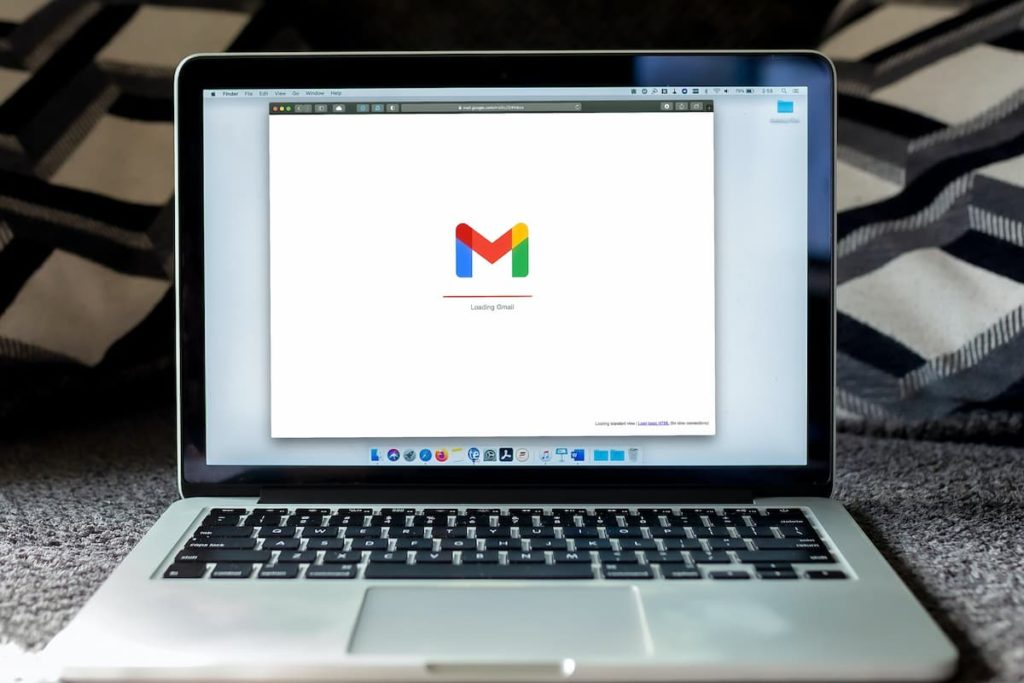2021 Google Algorithm Updates In Review

Originally published on the Capsule Marketing website
2021 has been a busy year for Google, releasing an update (or fixing bugs!) to the search algorithm on average every month this year. The good news is that in a study conducted by SEMrush there has been a decrease in the intensity of core updates compared to years past.
Here is a recap of this year’s confirmed and unconfirmed* updates to the search algorithm.
*unconfirmed updates are not officially announced by Google, however ranking tools such as SEMrush Sensor and Mozcast have picked up unusually high volatility indicating that something has changed in the search results.
Passage Indexing — February 10, 2021
The first update to kick off 2021 was the passage indexing update that was announced in October 2020. This update aimed to use their new technology to better understand key passages/paragraphs that appear on a page rather than just looking at all of the content on the page.
In simple terms, before the update, Google used to look at all of the content on the page to determine how relevant it was to the searcher’s query. After the update, Google can now analyse paragraphs and even single sentences from a webpage that are highly relevant to the searcher’s query.
This is good news for longer-form content or when you include multiple similar topics on a single page. For example, you could have one long page that includes all of the ways to brew a cup of coffee such as using a cafetiere, dripper or Aeropress, versus your competitor that has a single page for each brewing method.
Before the update, Google would understand that your page is about the general topic “coffee brewing methods” meaning that if someone searched specifically for “how to brew Aeropress coffee” your competitor would outrank you in the search results as their content, page title and description are specifically about Aeropress.
After this update, the playing field has been levelled somewhat between short, specific content and longer content on multiple, similar topics. This is because Google can now analyse the longer page and see that it covers several ways to brew coffee, not just coffee brewing in general. Therefore the page is now able to rank for “how to brew Aeropress coffee”.
Who will this affect?
According to Google’s Martin Splitt, this will mainly affect content creators who aren’t using SEO best practices such as heading tags or semantic HTML. This is because Google has improved their ability to identify high quality, useful content that would normally be lost in a long-winded, unstructured page.
At this time, this update only applies to US-based searches conducted in English. Before you think this update doesn’t affect you it can be worth checking the percentage of searches coming from the US. This can be done through either Google Search Console in the performance tab, or to get a rough idea if you don’t have Search Console, you can use Google Analytics via the Audience Geo overview.
Featured Snippet Drop — February 19, 2021
The featured snippet drop started on the 19th of February and lasted until the 12th of March. This change resulted in a 40% decrease in featured snippets across Google searches. Moz had conducted some research into what was going on and why there was such a sudden drop.
They found that the biggest drop in featured snippets was for single word searches such as “diabetes” and “pension”. The largest drops in featured snippets were in the, your money, your life category (YMYL), with a 68% decrease for health topics and a 60% drop for finance topics. The logic behind this was that Google was already displaying a knowledge panel with information pulled from reliable data sources. This meant that there wasn’t a need to risk displaying a featured snippet that might not be accurate, especially in YMYL niches.
Who will this affect?
This would have affected any sites that are in the YMYL niches and had featured snippets for single word searches.
Featured Snippet Recovery — March 12, 2021
On the 12th of March, the featured snippets that mysteriously disappeared three weeks earlier made a return. Google didn’t offer any explanation of what was going on and why they disappeared, leading people to conclude this was either a test they were running or a bug.
Who will this affect?
The featured snippet recovery would have affected similar sites to the ones that were affected by the featured snippet drop three weeks before. Although there was no guarantee your website would regain that featured snippet.
Product Reviews Update — April 8, 2021
The product reviews update in April was all about improving the quality of the search results when it came to websites that review physical and digital products, for example, Wirecutter or Which?.
The sites that performed well in this update had high quality, in-depth reviews, affiliate disclosures, outlined their review process and included author details listing their expertise.
Here is an example from Wirecutter of a review that is well structured and should perform well according to Google’s recommendations. For example, they include who the author is with a link to their profile as well as their experience, clear affiliate disclosures, a date. The review is also very in-depth at just under 6,700 words for four products.
The sites that “lost” in this update were ones that had very little useful content or didn’t have any unique information that wasn’t already on the manufacturer’s site. They also contained a large number of affiliate links and ads.
Here is an example from KitGuru of a review that could be improved with more unique content, rather than just a simple pros and cons list for each. As there is a 14-minute video review embedded on the page, a quick way to improve that review and rank higher would be to transcribe the video and include that information on the page.
Who will this affect?
This update will affect any sites that are primarily made up of product reviews. If you’re creating unique content and explaining your process then you’ll stand to benefit from this update. If your content is just copied from the manufacturer’s website with a few affiliate links you’ll most likely see a drop in performance.
June 2021 Core Update — June 2, 2021
The June core update kicked off the summer of Google updates with changes coming thick and fast. This summer core update was split into two parts as the Google developers couldn’t get everything ready in one go. As with all core updates, this wasn’t looking at a particular part of the algorithm but rather as a whole.
Sites that performed well in this update were food and drink, law and government, and internet and telecoms. These sites included Loc8nearme, Foursquare and Craft.
The sites that took a tumble during this update were in the business and industrial, travel, and home and garden sectors. These included Fresno Airport, Trip Advisor and Quora.
Who will this affect?
As with all core updates, this update will affect all of the websites in Google’s index however these can either be large changes that are quickly noticed or it could be a very small change that doesn’t have much of an impact in terms of traffic.
Spam Updates — June 23, 2021
This update was a small update to the algorithm and rolled out in a single day, rather than the core updates which can take two weeks to fully roll out. These updates don’t tend to affect that many sites unless they’re doing something that’s breaking the quality guidelines such as participating in link schemes, using automatically generated content, cloaking and more.
Who will this affect?
This update can affect your website if you’ve been actively breaking the quality guidelines. If your site has been affected and you’re unsure as to why it might be worth looking at any past SEO work to make sure that it hasn’t broken the guidelines, for example, link swaps.
Page Experience Update — June 25, 2021
The page experience update is one of the larger updates of the year and unusually, is one that SEO’s and developers were given a significant amount of information about. The advanced warning included when it was going to be rolled out and how to optimise your site to gain a boost in this update.
This update focussed on improving the page experience on mobile but it also had a large impact on news publishers, including the removal of the AMP badge for AMP pages and the requirement to have an AMP page to be featured in Google News.
In terms of improving mobile website experiences, Google rolled out the three Core Web Vitals (content layout shift, largest contentful paint and first input delay), avoiding intrusive interstitials and using HTTPS. The focus here was to make sure pages load quickly for users, don’t move around and are responsive to user inputs such as scrolling or clicking.
The rollout of this update was originally set to be launched in May 2021 but it was postponed until June and it then gradually rolled out until it was completed by the end of August.
Who will this affect?
This will affect all sites but the biggest impact will be for news publishers. While each site will be affected by the core web vitals part of the update, it will only be used as a tie-breaker in the situation where two sites are equal. So don’t expect to outrank more authoritative sites just because your site loads quicker!
July 2021 Core Update — July 1, 2021
The July core update is the second half of the June core update as the Google developers didn’t have time to roll out everything in one go. This time around we saw much more volatility in the search results compared to the June core update. Some people in the industry thought that the July update could bring some reversals on the changes made in June, however, this turned out not to be the case. Both the June and July updates affected domains differently, so while there were some reversals, this was not something all sites experienced across the board.
The winners from this update were generally in the shopping, arts and entertainment, and game related sites. These included Aliexpress, Houzz and Discogs.
The losers from this update were generally in the business and industrial, law and government, and beauty and fitness sectors. These included Zoominfo, Businessyab and the SEC.
Who will this affect?
As with all of the core updates, this will affect all sites in Google’s index however you might be affected more if you’re in one of the industries with higher volatility.
July 2021 Link Spam Update — July 28, 2021
The July link spam update was more intense compared to previous spam updates in the year as this targeted spammy links more broadly and across multiple languages.
Rather than going down the manual action route for sites that had previously participated in link schemes, buying links or otherwise had an unnatural backlink profile, they decided to simply ignore and discount the spammy links. So if your site previously benefited from having these links and they now get discounted it can very much feel like a penalty although this is something that most sites shouldn’t have to worry about.
If your site has been affected by this update it can be worthwhile conducting a link audit to see if there has been any past link building that might now fall afoul of the rules.
Who will this affect?
This update can affect all sites that have had a history of unnatural link building and that may not have been penalised before. The actual impact on your site will depend on the number of links Google has ignored and discounted as well as how competitive your industry is when it comes to links.
Page Title Rewrites — August 16, 2021
The page title rewrites update was less of an update in general and more about enhancing the page title rewriting that Google already does. Google used to rewrite pages titles based on the searcher’s query and to create a new title it used text pulled from the HTML on the page.
It generally worked well and didn’t cause too many issues as this didn’t happen the majority of the time as SEOs used descriptive page titles so the need to rewrite was quite low. With this update, Google has gone further and has started to use other elements on the page to generate what it thinks is a more accurate page title. These include heading tags, content that has been styled so that it’s prominent on the page, image alt text as well as the anchor text for links pointing to that page.
The reason Google hasn’t been showing the exact title tag is that they can either be keyword stuffed or not optimised at all. As an example, using the page title “Home” for your homepage isn’t very descriptive when it shows up in the search results.
This update sparked quite a bit of backlash from the SEO community as there were times that Google rewrote the page title so badly, it didn’t reflect the page content anymore. An example that Dan Barker shared on Twitter included a rewrite to the NHS flu page title. The original title tag set by the NHS was “Flue – NHS” and then Google rewrote the title to “Flue Vaccinations – NHS”. While you could argue that the original title wasn’t very descriptive it did accurately describe the content on the page which was all about flue. After the rewrite, anyone clicking on that title would expect to find a page about the flu vaccine with the intention to book one.
Another issue caused by this update was mainly in the medical and legal professions where title tags had been carefully created for accuracy and to make sure they were legally compliant, eg not making claims that weren’t true of a medicine. With Google suddenly making large changes to the title tag you were no longer in control of what was being displayed to users in the search results.
Google has since released some guidelines around creating descriptive titles and common issues to avoid. They also said that the original title tag set by the website will still be used for ranking purposes rather than their rewritten one.
Who will this affect?
This update will have affected all sites in Google’s index but in a couple of different ways. If your site didn’t have optimised title tags you may stand to see a benefit as Google improves your tags and makes it more likely people will click through to your site. If your site already has optimised title tags you might see a decrease in click-through rate as your carefully crafted title is now being overwritten.
Unnamed Update — October 2, 2021
This update was an odd one in terms of the updates we’ve seen this year. All of the major rack tracking tools showed that there was a huge amount of volatility not seen since the last core update. Although the general SEO chatter on forums didn’t reflect the levels seen by the rank tracking tools.
Who will this affect?
As this update was never confirmed as an update by Google it’s hard to tell if any specific industries were affected by this update. As it was a very quick rollout with volatility returning to normal the next day it should be easy to spot if you were affected.
November 2021 Spam Update — November 3, 2021
This was another update to the algorithm that targeted spam in the search results. Unlike the July link spam update, we were never told if this update targeted something in particular so it could have been targeting links once again, content spam or other forms of webspam.
Who will this affect?
This update can affect anyone who has some elements of spam on their site. The easiest way to check whether you have been affected by this update would be to either take a look at your rankings or see if your web traffic has been affected in Google Analytics.
November 2021 Local Update — November 30, 2021
Just when you’ve finished writing your blog post on a round-up of this year’s Google updates, Google decides to release another update. This time it’s having a big impact on local search.
This update was originally unconfirmed by Google however those within the local search community started to see large changes in the map pack, which led to Google confirming the update. They confirmed that the local update started to roll out on the 30th of November and finished rolling out on the 8th of December.
The aim of this update was “a rebalancing of various factors we consider in generating local search results” but it has since been called the vicinity update by local SEOs. From what we can tell so far, the update focussed on two main things. The first is the proximity of your business in relation to where the person is searching from and the second is the inclusion of keywords in a business name.
Before the update rolled out it was common to see businesses in competitive markets avoid the worst of the proximity factor and still rank very far away from their office location. It was also common to try and include some keywords in your business name (although this wasn’t technically allowed by Google) so that you could rank for those terms. For example, if we changed our Google My Business listing from “Capsule Marketing” to “Capsule Brand & Digital Marketing Agency” to try and rank for those keywords.
This update also corresponds with Google changing the layout of the map on the search results page (SERP) to make it square and therefore more zoomed in.
Now that the update has rolled out, your proximity to the searcher has become a bigger factor in whether you will be shown in the map pack. If you had included keywords in your business name in your Google My Business profile you can now expect these to have much less of an impact.
Who will this affect?
This update will affect all businesses that have a Google My Business listing however if you’re a restaurant or cafe the impact will be larger than a marketing agency or an insurance company.
It will also affect those in more competitive business areas as the proximity to a business becomes a bigger factor, you will end up being shown in fewer searches from further away locations.
Another group who will feel an impact from this update are those who went against Google guidelines and added keywords to their business name, as these are no longer as strong as they once were.
However, there may be an unintended consequence as this will also affect legitimate businesses that have keywords in their name, for example, a business named “Terry’s Heating & Plumbing”. For a full roundup of this update, the local search experts at Sterling Sky have written a great post about it.
Conclusion
Hopefully, that’s it for the list of Google algorithm updates in 2021 and we don’t get a surprise over the holiday period! If you’re looking for help to recover from an algorithm update or spam penalty, or simply want to grow your presence online, we can help you reach your goals with our SEO services.

Similar Posts

Choosing Between a Marketing Agency, a Digital Marketing Freelancer and an In House Marketer

Mastering Email Marketing: Top Optimization Tricks for Maximum Impact

Harnessing the Power of Micro-Influencers in Niche Markets

The Evolution of B2B Digital Marketing: A Journey Through Time
